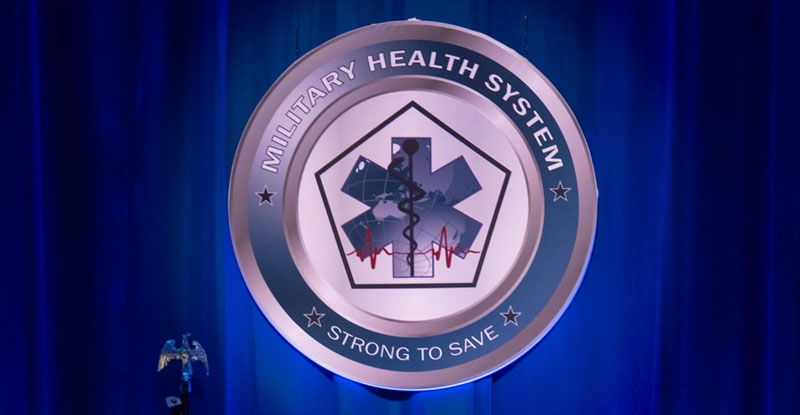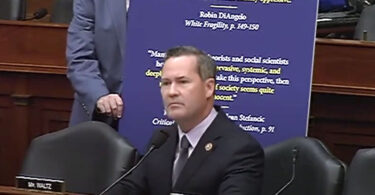It’s more important than ever for parents to push back on DOD policies, check in with their kids, and resolve to stay in the exam room with their children.
The Department of Defense (DOD) has quietly implemented controversial adolescent health policies throughout the military health system (MHS) that kick in when children turn 12 years old.
Because the official policies are hard to find and are not posted publicly at base clinics, most parents are shocked to find out that doctors prefer to treat their adolescent children in a completely parent-free setting.
Parents are outraged to be treated as if they cannot be trusted to guide their own children.
Here is my story detailing a quest for answers on why online medical record access is limited and why I was being asked to leave the room.
Two years ago, my family made a military move overseas. At our very first well-child visit to the base medical clinic, my child’s doctor, a complete stranger to us — as are most doctors in this transient lifestyle — said I would be required to leave the exam room at the next year’s exam so she could ask my child more “invasive” questions now that she was an adolescent. . . .
. . . . . In regard to “alone time” with the doctor, the now-highly politicized AAP recommends that practitioners ask parents of adolescents to leave the exam room during well-child checks so they can conduct a psychosocial assessment without parental interference. The implication is clear: Medical personnel can be trusted, but parents cannot.
One tool doctors use for the psychosocial evaluation is the HEEADSSS assessment. “The Psychosocial Interview for Adolescents Updated for a New Century Fueled by Media,” written by U.S. military-associated doctors, is a detailed explanation of HEEADSSS.
Some suggested questions from a HEEADSSS survey are: “Tell me about your sexual life. Are you attracted to boys? Girls? Both? Not yet sure?” If the doctor wants specifics, some suggested follow-up questions are: “Are your sexual activities enjoyable?” “How many sexual partners have you had altogether?” “What are you using for birth control? Are you satisfied with your method?”
Parents are rightly outraged to learn these questions could be asked of children as young as 12 while parents are excluded. . . .
. . . . But as is the case in the civilian world, I suspected that the extraordinary measures to prevent military parents in the MHS from accessing online adolescent records and the “requirement” for parents to leave the exam room were in place, in part, to hide so-called gender identity and sexual health conversations and treatment from parents of adolescents.
My suspicions were proven correct when in April, a video that went viral was leaked from a two-day mental health stand-down at an overseas U.S. military base where the base pediatric provider authoritatively stated that she was having conversations with military children about gender identity and sexual health that she was keeping confidential from parents.
She stated unequivocally that it was the policy of “Big Navy,” aka DOD, to circumvent parents.
This week in Bahrain the Navy told sailors that they talk to their children at age 12 about gender identity, sex, STD’s, pregnancy, etc. without notifying parents. When asked if “the Navy’s policy circumvents a parents right to know?” the @USNavy official answered “Yes”. Insane. pic.twitter.com/sNw5nhEfwt
— Robby Starbuck (@robbystarbuck) April 14, 2023
It is now clear that military parents cannot count on the system they once trusted to care for their children.
In light of this, it’s more important than ever for parents to push back on these policies, check in with their kids to see if these types of conversations have taken place, and resolve to stay in the exam room with their children, especially if the doctor is a stranger.
Nothing less than the health and safety of our children, and the all-important parent-child relationship, is at stake. . . . (read all on The Federalist)









Leave a Comment